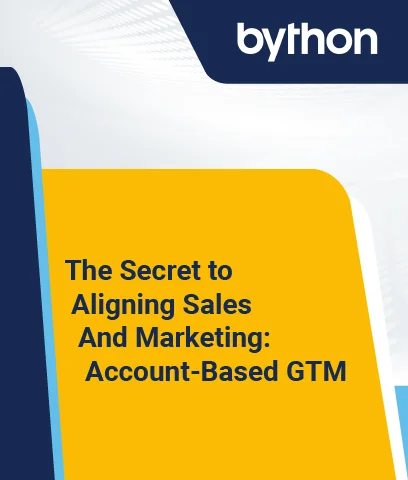Without a business loan, it might be difficult to scale your firm, and this could hinder the growth of your company. Business loans are available from both commercial banks and Federal Reserve-regulated non-banking financial institutions (NBFC). On one hand, using a business loan can be a challenging process. But you can make the procedure simpler by avoiding certain common business loan mistakes.
More often than not, loan denials result from honest mistakes, a lack of relevant information, or simply ignorance. As a result, let’s learn about these common mistakes in order to prevent your business loan applications from going wrong.
If You Want to Get a Business Loan, You Must Avoid These Business Loan Mistakes.
-
A business plan that is inadequate
Many business owners discover they have been denied a loan because they did not offer an organized set of business ideas or a business plan to the financial institution. Before loan approval, the lender thoroughly examines the borrower’s business plan, which is expected to be an informative business plan. When lenders are unable to assert the legitimacy of the loan request, they form an unfavorable impression of the loan applicant, which subsequently leads to loan denial. Lenders will typically ask three key questions when you approach then fit s business loan:
- How much funding do you need?
- For what purpose will the funds be used?
- How do you intend to repay the loan?
A thorough business strategy is fully prepared to address all of these issues. A good business plan would include basic information such as operating costs, earnings, expenses, profit as well as the future potential of the business.
Provide copies of CA audited financial statements including the profit and loss statement, balance sheet, and cash flow statement, as well as the corporate tax returns of your company.
-
Records of past defaults
Often business owners underestimate their prior missed payments. A major consideration for financial organizations is your past overdue. Your past loan records assist them in calculating the risk profile of your business. Track your accounts receivable, company credit card bills and invoices, and have a regular repayment schedule to improve your chances of being approved for a loan.
-
Borrowing beyond your affordability capacity
Prior to applying for a business loan, it is important to have a complete understanding of your present financial position. First, figure out how much EMI you will have to pay, and then figure out how much you can afford to pay. Then, borrow only what you can afford to pay back.
-
Inadequate credit rating
The criterion used for deciding whether to grant a business loan vale varies from lender to lender. Your credit score is considered when processing your application with all lending institutions. An excellent credit rating can assist in your attempts to negotiate the loan interest rates.
It is recommended that you keep a strong credit history and a decent CIBIL score before applying for a business loan. Credit scores range from 300 to 900, and any number above 700 is seen as a high score by financial institutions. Credit scores do not change overnight, therefore you will have to be patient while your credit score grows as you consistently make payments on loans or credit cards, even if you have to make payments in the form of EMI (i.e. an automatic payment from your bank).”
-
Skipping the fine print
Ignoring the comments of the paperwork is another common business loan mistake many people make. When the loan is approved, conduct a thorough audit of the loan documents. Legally binding documents should not be signed unless they are fully understood. Whenever you confront difficult financial terms, seek the assistance of a financial expert.
A number of hidden charges and terms are missed at the time of loan approval. After applying, many hastily sign the agreement but then have to face the repercussions of it while repaying their loans.
-
Insufficient liquidity
To qualify for a loan, your company’s liquidity ratio is looked at. Liquidity is referred to both as having cash on hand as well as having access to money in the bank. People who have a financial reserve are more likely to qualify for business Loans.
-
Contracting with Collateral
In case of an equipment loan, bill discounting, asset-backed loan, inventory financing, secured term loan, personal guarantee, letter of credit, and a vehicle loan for commercial purposes, collateral is sometimes requested by the lender. When applying for a loan, lenders want repayment on time and a guarantee that the money will be secure.
To obtain this, borrowers need to have collateral (real estate, warehouse, inventory, retail, raw materials, equipment, stocks, commercial vehicles, etc.). Lack of collateral could lead to denial of a loan once more.
New firms are not provided collateral-free, unsecured loans by banking institutions. Be certain to know what your collateral will be before applying for a loan. Your selection of collateral should match the amount of the loan you are requesting.
Small and medium firms that have been in business for three years or more may benefit from loans with no collateral requirements.
-
Applying for incorrect loan options
Applicants may jump from loan product to loan product, not recognizing that they have applied for all of them until the final stages of the application process. For you to pick there are several lending products in the financial sector. Before closing any loan, it is suggested to conduct an exhaustive search to see if there are other loans and loan deals to compare against. In some cases, people mistake finding a little varied loan package given by multiple lenders for being decisive in lending decisions.
-
Defaulted or poor financial history
The best way to get a company loan is to focus on this factor. You will have a hard time receiving loans if you have a poor credit history or have defaulted on any lending products. NBFCs and MFIs offer loan products, but typically at higher interest rates, as the risk component is larger for these types of companies.
-
Applying for multiple loans
Lenders may have an impression that someone who has applied for several loans or credit cards is desperate for credit and would be unable to repay the amount borrowed. Because of the possible non-payment of loans, lenders don’t want to be at risk of losing their money to an applicant seeking multiple loans.
Final Thought
It is as crucial to get a company loan as it is to take on other important financial decisions in your life. As your career, finances, children’s education, earnings, household expenses, and daily expenses are dependent on your business, you will only be successful in these areas if your business succeeds.
As the firm grows, your earnings will improve. As a result, expanding your business and improving your standard of living are mutually exclusive activities. If you pursue one, you simply cannot afford to make these business loan mistakes while applying for a business loan.





